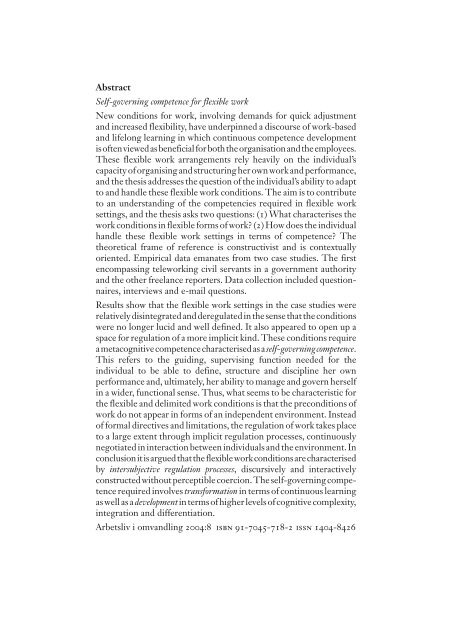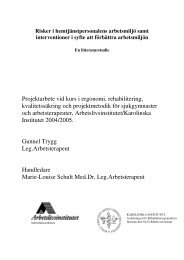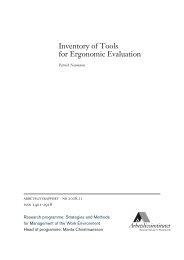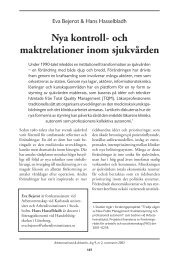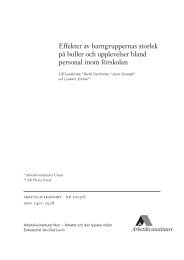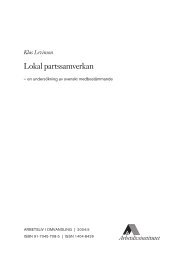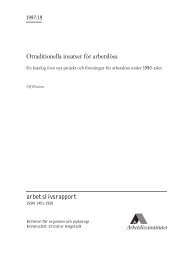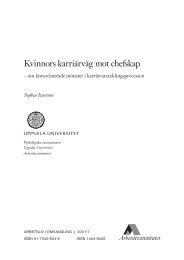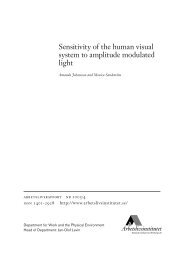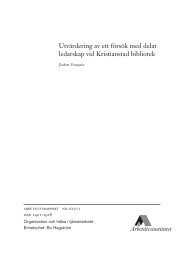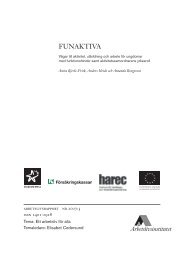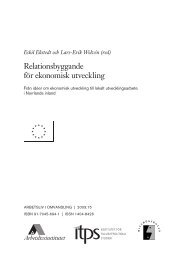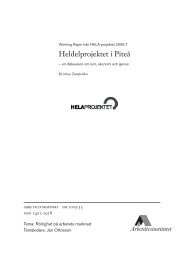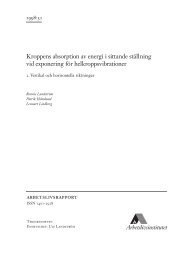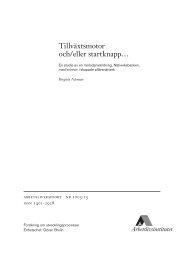Det flexibla arbetets villkor â om ... - Lunds universitet
Det flexibla arbetets villkor â om ... - Lunds universitet
Det flexibla arbetets villkor â om ... - Lunds universitet
- No tags were found...
You also want an ePaper? Increase the reach of your titles
YUMPU automatically turns print PDFs into web optimized ePapers that Google loves.
AbstractSelf-governing c<strong>om</strong>petence for flexible workNew conditions for work, involving demands for quick adjustmentand increased flexibility, have underpinned a discourse of work-basedand lifelong learning in which continuous c<strong>om</strong>petence developmentis often viewed as beneficial for both the organisation and the employees.These flexible work arrangements rely heavily on the individual’scapacity of organising and structuring her own work and performance,and the thesis addresses the question of the individual’s ability to adaptto and handle these flexible work conditions. The aim is to contributeto an understanding of the c<strong>om</strong>petencies required in flexible worksettings, and the thesis asks two questions: (1) What characterises thework conditions in flexible forms of work? (2) How does the individualhandle these flexible work settings in terms of c<strong>om</strong>petence? Thetheoretical frame of reference is constructivist and is contextuallyoriented. Empirical data emanates fr<strong>om</strong> two case studies. The firstenc<strong>om</strong>passing teleworking civil servants in a government authorityand the other freelance reporters. Data collection included questionnaires,interviews and e-mail questions.Results show that the flexible work settings in the case studies wererelatively disintegrated and deregulated in the sense that the conditionswere no longer lucid and well defined. It also appeared to open up aspace for regulation of a more implicit kind. These conditions requirea metacognitive c<strong>om</strong>petence characterised as a self-governing c<strong>om</strong>petence.This refers to the guiding, supervising function needed for theindividual to be able to define, structure and discipline her ownperformance and, ultimately, her ability to manage and govern herselfin a wider, functional sense. Thus, what seems to be characteristic forthe flexible and delimited work conditions is that the preconditions ofwork do not appear in forms of an independent environment. Insteadof formal directives and limitations, the regulation of work takes placeto a large extent through implicit regulation processes, continuouslynegotiated in interaction between individuals and the environment. Inconclusion it is argued that the flexible work conditions are characterisedby intersubjective regulation processes, discursively and interactivelyconstructed without perceptible coercion. The self-governing c<strong>om</strong>petencerequired involves transformation in terms of continuous learningas well as a development in terms of higher levels of cognitive c<strong>om</strong>plexity,integration and differentiation.Arbetsliv i <strong>om</strong>vandling 2004:8 isbn 91-7045-718-2 issn 1404-8426


